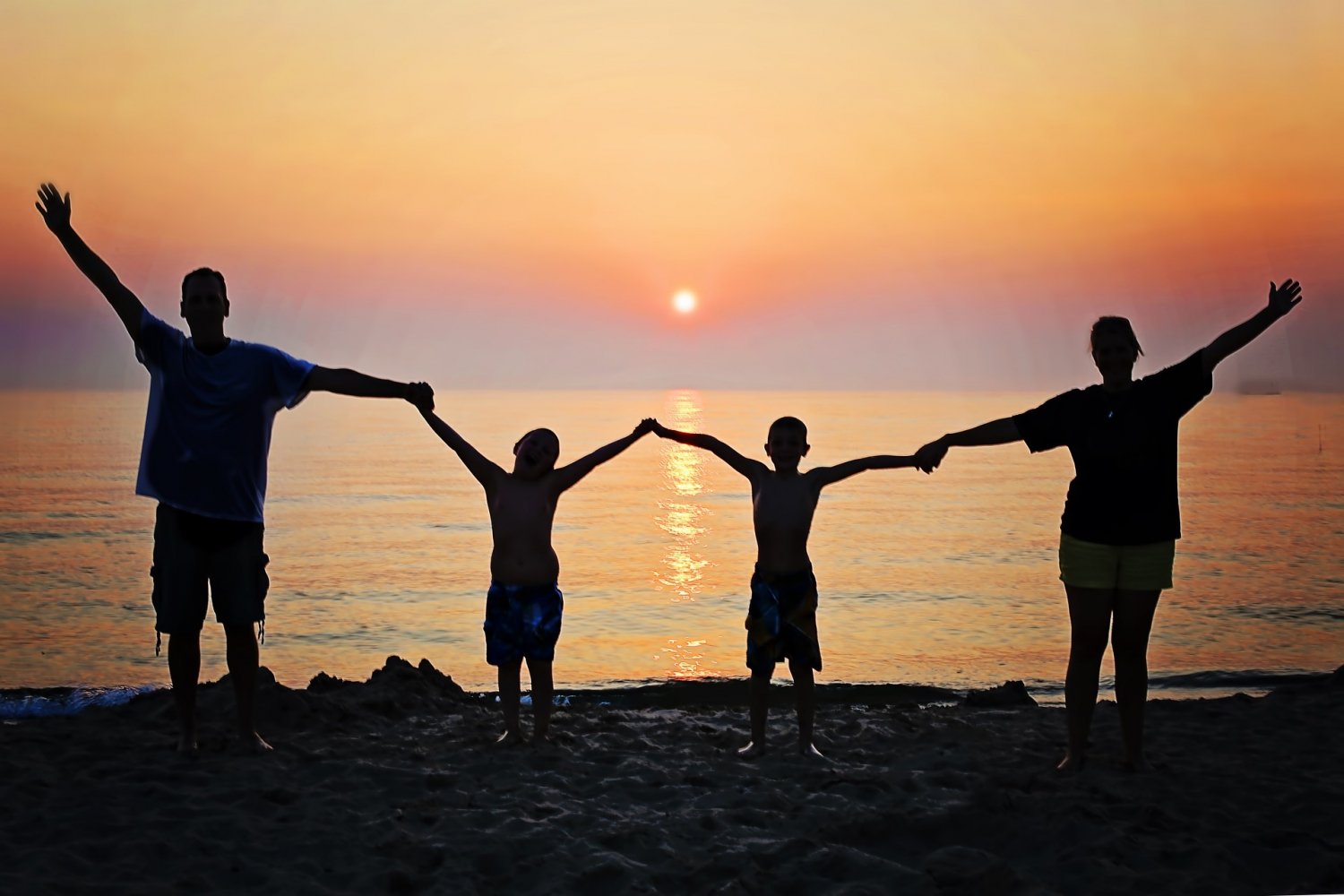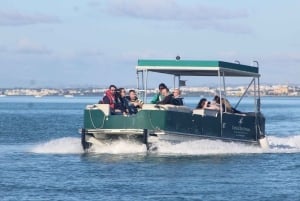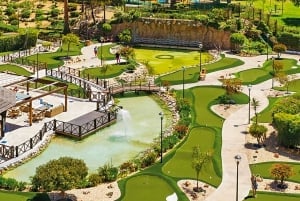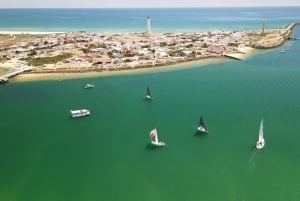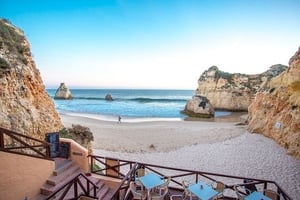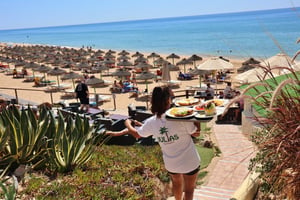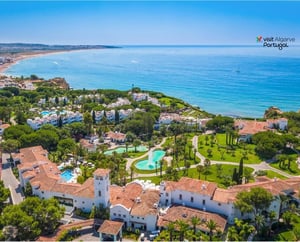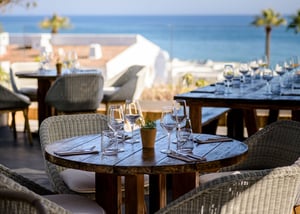Moving your Family to Portugal
Book Top Experiences and Tours in Algarve:
If youʻre booking your trip to Algarve last minute, we have you covered. Below are some of the top tours and experiences!- Albufeira: Full-Day Buggy Tour with Lunch
- Faro: Ria Formosa Natural Park Segway Tour & Birdwatching
- From Faro: 4 Stops, 3 Islands in Ria Formosa Catamaran Tour
- Porches: Algarve Vineyard Tour and Wine Tasting Experience
- Albufeira: MiniGolf Adventure Park Entry Ticket
If you're thinking of moving to Portugal with your family, chances are you're looking for a better life-work balance, an all-round better quality of life, and a safe and healthy environment where you and your children can flourish. You may have heard that Portugal is a very popular destination for family holidays, but it is likely you have questions about living here full-time. It's not perfect but living in Portugal does come with certain advantages that will benefit your family.
In the article below we provide some insights into family life in Portugal.
Overview
Portugal is an inherently very family-friendly country. Family takes centre stage in many aspects of life - you'll see parents, kids and grandparents eating out together, going to the cinema together or enjoying sunny days at the beach together. Children are welcome pretty much everywhere and being included in activities and conversations helps them learn early how to interact with others and how to behave in social situations.
Some of the family-friendly aspects of Portugal are enshrined in law - for example, those accompanied by children under 2 years of age, or who are pregnant, have priority in shops, pharmacies, supermarkets, etc passing to the head of the queue, and in shopping centre car-parks there are spots reserved for those with families.
In recent years Portugal has become a popular destination for retirees due to some great tax incentives (find out more about tax in Portugal). However, the majority of those who choose to move to Portugal are in fact of working age, moving with their families. This makes it easier for each family to connect with others in similar positions, to gain from each other's experience and to forge new friendships.
Well-being
According to Unicefs Innocenti Report, Portugal ranks well above the UK and the USA in children's general well-being, scoring particularly well in the mental well-being category. In Portugal it feels like children can be children for longer, there isn't such a rush to grow up.
The climate helps - While screen-time is a treasured activity by kids and teenagers all around the world, the climate in Portugal means that outside activities are almost always an option. Bad weather can't be used too often by recalcitrant kids as an excuse to get out of sports training or activities. And there are so many active outdoor hobbies to choose from - football, sailing, golf, swimming, tennis, surfing,that there is bound to be something your child will want to try.
Beach life - With many of Portugal's most popular towns and cities located on the coast, it is no surprise that time by the sea is a favoured leisure activity. And beach days are good for every age group. Babies get their feet under them and build their leg muscles on the sand, which is a forgiving surface when they topple over. Children swim, play football, do cartwheels, build sandcastles and dive in the surf, reaching the end of the day with their bodies tired and their minds happy. And teenagers can spend endless days at the beach with their friends, in a safe and generally low-risk environment.
During the summer, there are often free activities provided by the municipal authorities to encourage an active lifestyle. Many towns have skate parks as well as playgrounds, free to use, and there is a great range of summer camps offering sports and activities, some private and some municipal.
Healthy diet - the availability of fresh, seasonal produce and inclusion of fish and seafood makes for a balanced diet that helps young bodies grow in a healthy manner. While there are plenty of fast food and world cuisine options, it is easier to eat well in Portugal than in many countries. For example, the school meals (which are very inexpensive) at public schools in Portugal are made of healthy options. From age 3 the children have a soup, main course featuring meat, fish or vegetarian option, plus salad or vegetables, plus fruit, every day for lunch.
Staying Connected - unless you are pretty far off the grid you will have good internet connections in Portugal so you can stay in touch with family and friends in other countries. Your children will be able to keep in touch with their grandparents and the teenagers will be able to stream the latest shows.
Education
There are private and public education options in Portugal. Many people find that opting for the public system, particularly if their children are young, is the fastest and easiest way for the children to integrate into their new life, as they usually pick up the language fairly easily.
For older children, who may be approaching exam taking and career choice years, not speaking Portuguese can present a hurdle if they opt for the public system.
Public Education
The public education system provides schooling free of charge to all residents and is compulsory for children aged 6 to 18 years of age. In the last 3 year cycle of their schooling, students choose to follow science and technology, arts and languages, economy or practical courses.
For pupils who do not speak Portuguese when starting or joining school, many schools offer Portuguese language classes - and parents are often welcome to attend too.
Pre-school - 3 to 6 years of age. The kindergartens (Jardim de Infância) are part of the public system and therefore free of charge.
Third Level Education - Public Universities and Polytechnics in Portugal provide third level education at very reasonable rates - €697 per year (rate for 2021-22). Access to third level education depends on results from final school exams plus an average of school grades years 10 to 12.
Pre-school - 0 to 3 years of age. There is no national system for children this age but there is a vast network of private creches and kindergartens that cater to children from 4 months of age. As they are private, these are fee-paying, however they can be state subsidized.
Find out more about Schools in Portugal
Private Education
There are excellent private education options in Portugal, generally located in those areas where there are more expat families, such as Lisbon, Porto and the Algarve. There are private schools following the Portuguese curriculum, private schools that follow an international curriculum, teaching in English, and there are schools that offer both.
Private schools are fee-paying schools and it can be a considerable investment. Each family needs to choose the option that best suits their objectives taking into consideration their children's ages, how long they plan to stay in Portugal, and of course, the budget.
There are also private universities in Portugal. Fees here are not exorbitant compared to other countries, between €300 and €500 per month. And some courses are available in English.
Overall, the standard of education in Portugal is considered to be high. Education tends to be quite academic, rather than practical. The upside of this, is that students who have successfully completed their compulsory schooling in Portugal often find the jump up to university education outside of Portugal relatively easy.
Healthcare
There are public and private healthcare systems in Portugal.
The public system - SNS, Serviço Nacional de Saúde - was ranked 12th in the world in the WHO 2019 report. Essential and optional medical care is available to residents for a small charge. It is not a perfect system, but it is at least on a par if not better than many other European public healthcare systems. Children up to the age of 12 have free medical care, as do pregnant women.
Pre- and post-natal care in Portugal is very good and is available for low or no cost to residents.
Private healthcare is also available in Portugal. There are private hospitals and clinics offering a full range of specialties, essential and optional treatments. Health insurance is advised to offset the costs. A basic plan has an estimated annual cost in the neighbourhood of €500.
Dental services in Portugal are generally private. There are health policies that cover dental work or you can opt for a specific cover.
Moving your family to Portugal is a big decision and each family will have its own specific reasons for making the move. If you are looking for a safe environment, with clean air to breathe, where family is important, where there is time to be together and grow together, then Portugal is definitely one of the top options.


